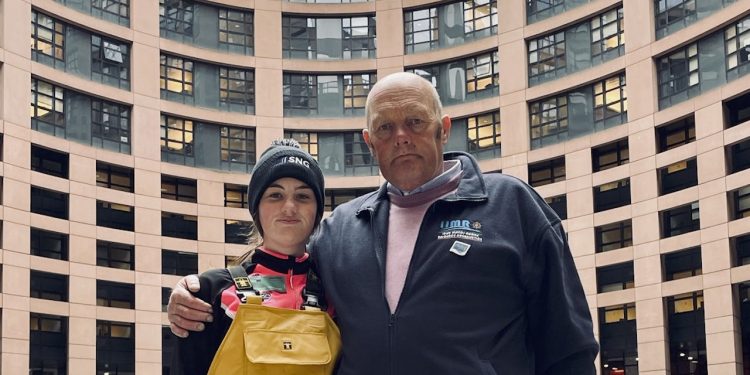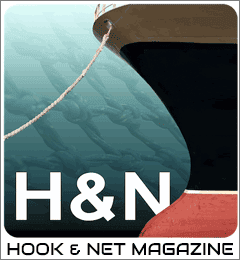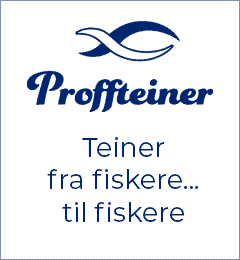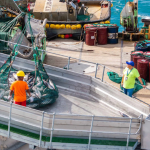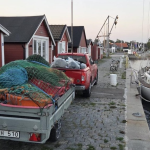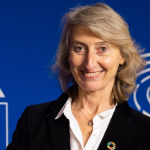Fourteen-year-old fisher Muireann Kavanagh travelled from Arranmore Island in Co. Donegal to the European Parliament in Strasbourg for a series of meetings with MEPs, facilitated by Chris MacManus MEP.
She’s highlighting the recent closure of the line-caught pollack fishery and its impact on island and coastal communities in Ireland and elsewhere in Europe. Although pollack stocks remain strong in Ireland and the line-caught fishery is exceptionally low-impact, directed catching has been closed based on ICES advice.
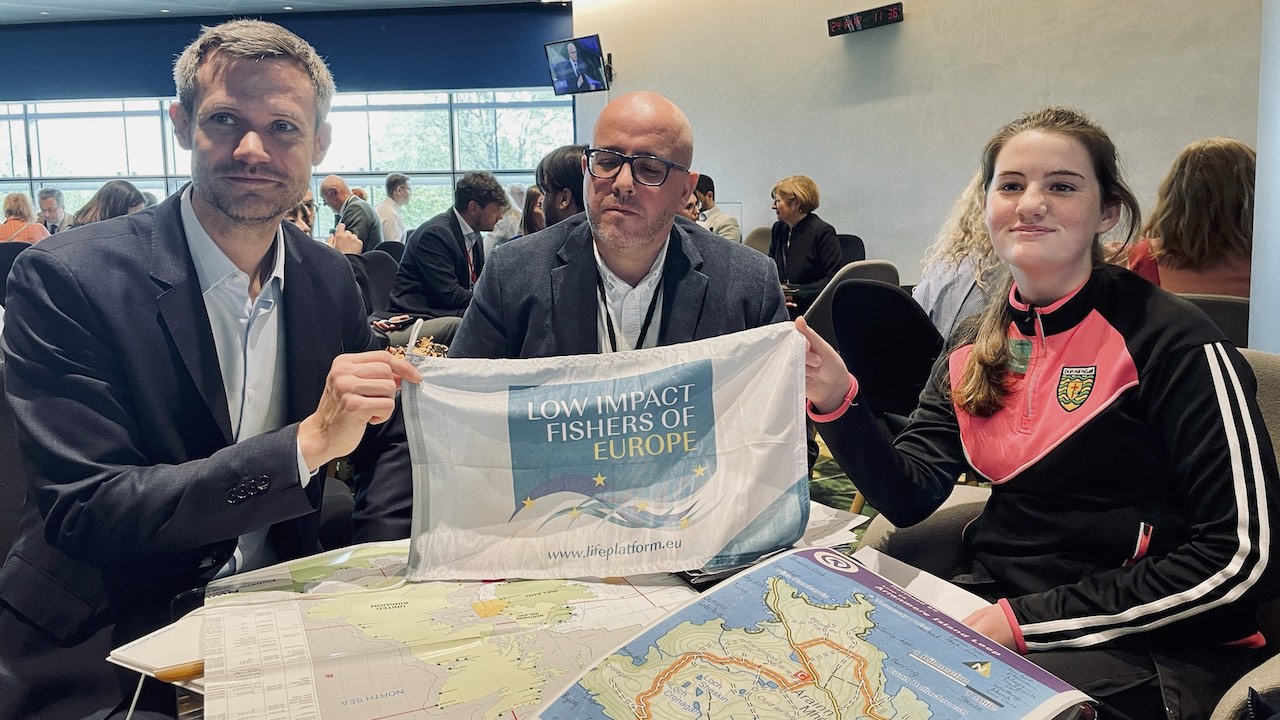
‘The meetings went well and we felt we were listened to. We will continue to put pressure on the Irish government and fight for our future,’ Muireann Kavanagh said.
‘Meetings were very productive, we all agreed that the current one size fits all rules are detrimental to inshore fisheries and the future of island communities,’ commented her father Neily Kavanagh who travelled with her to Strasbourg to raie awareness of how coastal communities have been affected.
‘With Muireann’s testimony we can put a face to the effects of unfair EU policies,’ says Marta Cavallé, Executive Secretary of LIFE, which represents small-scale fisheries across Europe.
‘It is unacceptable that high-impact fishing of pollack is still allowed (as a bycatch species) while low-impact fishing is forbidden. It means closing access to those impacting the fishery less, having disproportionate socio-economic consequences on island communities, discouraging young fishers and leaving them with few alternative livelihoods and prospects for the future. Better science and also common sense, fair management measures are needed to protect both pollack and the young low-impact fishers of the future like Muireann.’
The Irish Islands Marine Resource Organisation producer organisation (IIMRO) is calling for an urgent new scientific studies on pollack to be carried out, arguing that the assessment that led to the recent closure of the pollack fishery is flawed and causing a disproportionate social impact on island and inshore fishing communities.
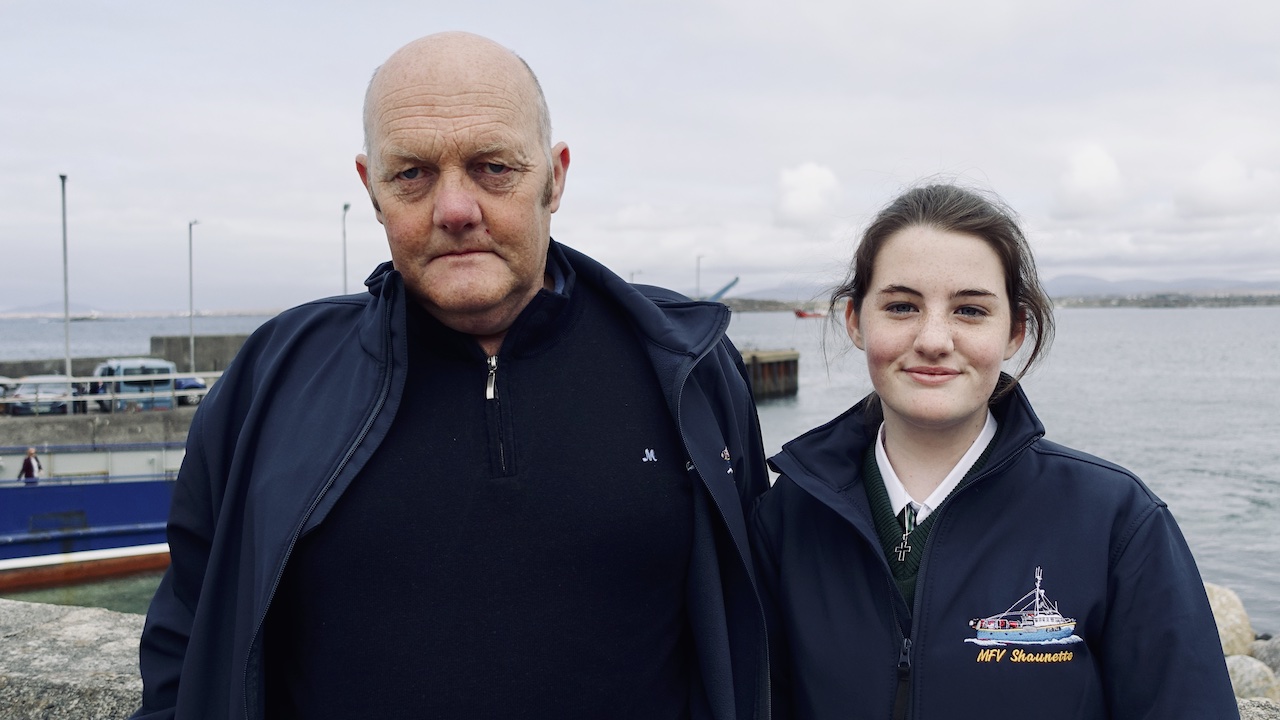
The organisation says new studies are needed so that up to date stock data can be collected to properly inform fisheries management. The pollack review planned for 2025 does not address the immediate impact of the closure of the directed fishery on many peripheral communities. Temporary supports must be provided so that there will be a fleet available to fish into the future when science catches up with reality.
IIMRO are members of the Low Impact Fishers of Europe (LIFE) and have been coordinating with other member organisations similarly affected by the restrictions. The closure of directed pollack fishing covers a huge area from the West of Scotland in the UK to the French channel coast (corresponding to ICES sub-areas 6 and 7).
In Brittany, hand-liners have been warning about the state of pollack populations for years. They have proposed several conservation measures, which have been repeatedly rejected. Today, their survival is at risk. Most of them are young fishers who work in a low impact manner and for whom pollack accounts for the majority of their catches.
IIMRO PO members are offering to participate in a new scientific program to collect line caught pollack samples from inshore waters which will give realistic data on pollack stocks around the Irish coast and improve data for pollack management. The organisation has written to ICES to request a meeting to discuss solutions using a participative and differentiated approach which harnesses the traditional knowledge of fishers like Muireann and her family, which goes back generations.
The Common Fisheries Policy regulation, adopted in 2013 promised to support islands and their fishers: Small offshore islands which are dependent on fishing should, where appropriate, be especially recognised and supported in order to enable them to survive and prosper.
This support has not materialised, either from the EU or national governments – and Muireann Kavanagh is asking why, and what support will now be provided.
‘We are hopeful that Muireann’s young voice can be heard and listened to in the corridors of Europe, they are not being heard in Ireland. We all have a duty to allow her and the future fisher’s to have a means to preserve Island life,’ said Jerry Early, who chairs the Irish Islands Marine Resource Organisation.

